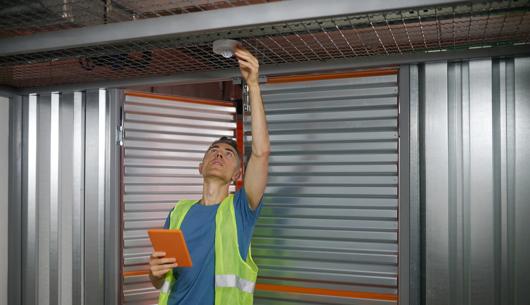The problematic transition to electric vehicles - what is the impact on manufacturing
It was reported in May 2022 that the BMW-owned manufacturer had been forced to put a temporary stop on the production of all manual transmission vehicles due to the global semi-conductor shortage and the war in Ukraine. Mini stated that the move was made in order to "ensure production stability".
Deliveries at Mini have fallen by over a fifth in the second quarter of this year as a result of ongoing supply chain disruptions caused by the pandemic and challenges with the transition to electrification.
It was reported in May 2022 that the BMW-owned manufacturer had been forced to put a temporary stop on the production of all manual transmission vehicles due to the global semi-conductor shortage and the war in Ukraine. Mini stated that the move was made in order to "ensure production stability".
The difficulties that Mini is experiencing are emblematic of the challenges in the automotive sector at present, and this latest news comes at the same time as an announcement that registrations for new vehicles in the UK had fallen for a fifth consecutive month, as reported in SMMT’s August update.
Challenges
The shortage of semiconductors is one of many challenges currently having an impact on automakers like Mini. These production issues are largely as a result of an increase in demand following shutdowns of manufacturing plants and a shortage of resource caused by the COVID-19 pandemic. These issues have been compounded by:
- shortages of other key materials, such as wire-harnessing, which has traditionally been sourced from Ukraine, which has become difficult to obtain as a result of recent events; and
- the new wave of COVID-19 lockdowns in China.
As a result of the restrictions on the supply of key materials and components and long lead times, manufacturers have been unable to keep pace with the volume of orders and delivery schedules.
The issues affecting supply and demand have caused the cost of material and production to skyrocket. This has been further compounded by rapidly soaring energy costs and the rise in inflation. Manufacturers have been trying to tackle these increased production costs and reduced sales volumes by raising the price of sales. However, this may not be sustainable in the long term in light of the current cost of living crisis.
When announcing Mini’s second quarter results, BMW commented: “High inflation and rising interest rates worldwide are making conditions for consumers less favourable and are likely to influence spending behaviour in the coming months”. If consumer spending does reduce, as is expected, this may have a negative impact on the transition to zero emissions for cars and vans by 2035.
Labour shortages are also fuelling the difficulties the industry is facing. Mass layoffs and an increase in absences due to the pandemic have caused considerable disruption to production. The timing of this has been particularly challenging for businesses given the pressing need for further training, and the need to upskill workforces in order to embrace the new technologies that are powering the shift to electrification. The transition from traditional internal combustion engines to Electric Vehicles and an increase in automation demand new skills and new knowledge. As a result, the recruitment and retention of skilled workers poses a difficult challenge for manufacturers who are already grappling with new ways of building cars.
Solutions
The issues faced by the automotive industry are complex, global and multi-faceted.
The UK automotive industry is a resilient one but help from key stakeholders, particularly the government, can help it overcome these challenging market conditions.
There is no quick way to fix issues such as the global supply shortage, which according to BMW and the SMMT is due to ease as we enter 2023 and beyond. There are, however, areas where government intervention and funding will make a difference:
- The government needs to create conditions for economic growth and increased consumer confidence. This will help to preserve demand in the automotive market and help achieve the UK’s net-zero targets. One option advocated by RAC is for government to reinstate the plug-in car grant in order to support consumer confidence in EVs . A further step would be for government to ensure that its rollout of EV charging infrastructure in the UK continues to keep pace with the rate of EV production, which will encourage consumer uptake.
- Government support will also be needed to address the worker and skills shortages. Support is required to ensure that access to education is available to everyone so that individuals can acquire the knowledge and skillsets needed to succeed in this new technology-driven industry. Businesses need confidence to invest in research and development opportunities and incentives are needed to encourage recruitment, whilst also prioritising the upskilling and retention of existing workforces.
With some judicious support from government and other stakeholders, the UK automotive market can hopefully look forward to a more positive 2023. As the SMMT recently commented: “there is light on the horizon. Next year, the expectation is for 1.89 million registrations… a significant improvement on the past two years”.
This article was originally published by Manufacturing Global in September 2022.
Contact

Paul Kirkpatrick
Partner
Paul.Kirkpatrick@brownejacobson.com
+44 (0)330 045 2318







































